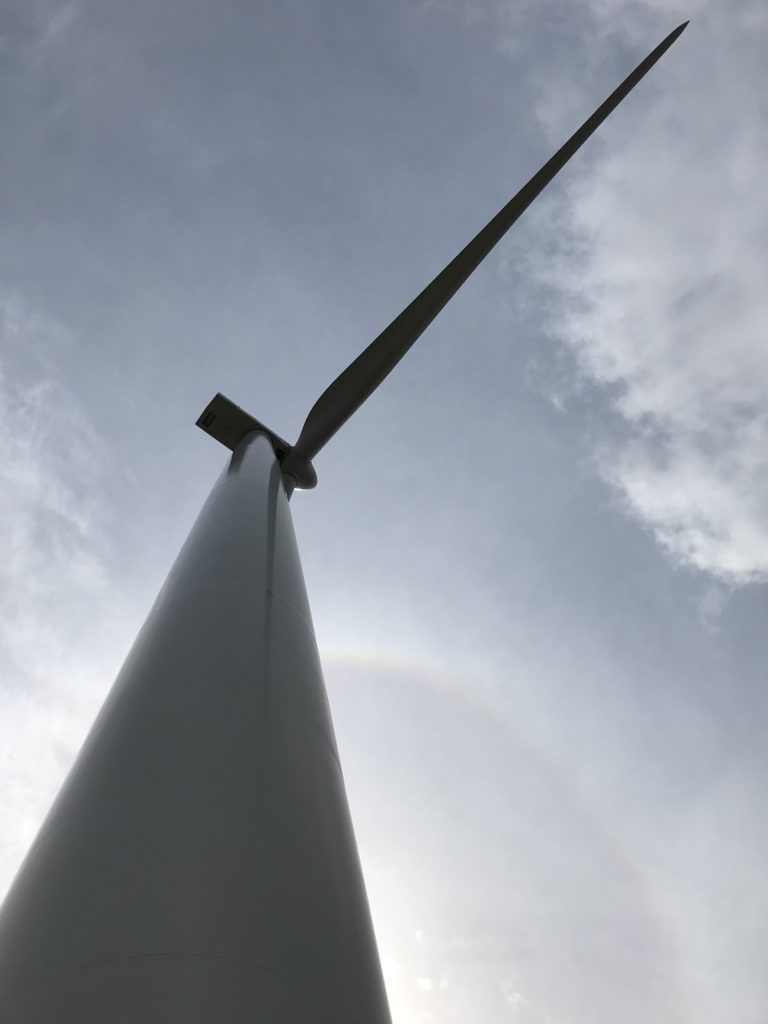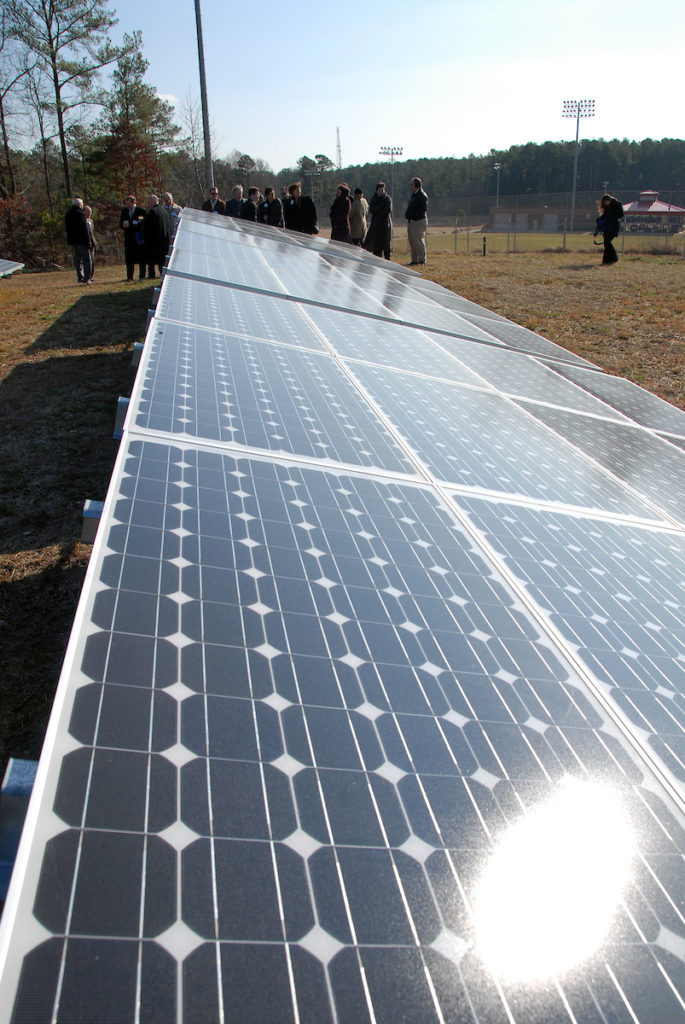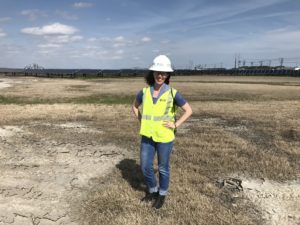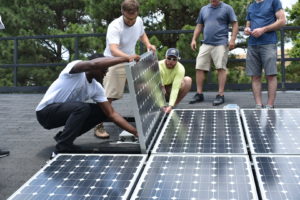NCCETC’s Proposed Energy That Works Series Awarded by NC State University’s Sustainability Fund Project


The NC Clean Energy Technology Center (NCCETC)’s new Energy That Works Series – a project created and proposed for the North Carolina State University Sustainability Fund to generate new connections and learning at NC State University – was recently accepted and awarded $10,716.
The Energy That Works series will impact students, staff and faculty on NC State campus, and leverage the unique position of the NCCETC in order to connect students with the energy industry across the state. The project will include a Field Trip Series, Renewable Energy Training Program, a student internship opportunity at NCCETC, and a creation of planning group meetings comprised of students, faculty and staff to support planning and outreach – all during the 2019-2020 academic year.
The project’s goal is to facilitate meaningful dialogue across disciplines about the importance of clean energy and its role in creating a sustainable future, and increase coordination among energy efforts at NC State University. The series aims to leverage and engage with existing staff, resources, expertise and educational programs to create new opportunities.
“My hope is that we can increase awareness of the Center on campus and show that we can provide benefit to students by connecting them to the industry and giving them experiences they wouldn’t get in the classroom,” said Allison Carr, Clean Transportation Specialist at NCCETC and proposal writer.

“One possible outcome could be a broader conversation about the role of clean energy in North Carolina and at NC State,” Carr wrote in the proposal. “This Energy That Works Series could engage students and provide a foundation for future campus discussions on the complex topic of energy policy, technology and action.”
The Field Trip Series will include about eight events during the 2019-2020 academic year. The goals of the field trip and speaker series is to provide professional development opportunities so students can experience the complex challenges of energy policy and technology. Field trips will include half-or-full-day visits to energy sites across the state.
“It’s an opportunity for students to see actual generation sites – whether a Combined Heat and Power (CHP) plant, or biomass facility,” Carr said. “You learn about it in class, but this lets you see things in person and behind the scenes.”
The three-day training will be on Solar PV Fundamentals and will include a hands-on workshop, allowing students to design and install a fully functioning rooftop grid-tied solar PV system.

The internship will be an opportunity for students to lead the implementation of the field trip and training series. They will work with Center staff to manage outreach/marketing, facilitate the planning group, support selection and scheduling of field trip sites, and help manage implementation of each activity.
Finally, NCCETC will also facilitate the creation of a planning group (of students, faculty, and staff) to support planning and outreach. The group will be comprised of various student organizations related to engineering, environmental sciences, sustainability, energy, agriculture, and political science, as well as interested faculty, including student organization sponsors.
“Sustainable clean energy education requires interdisciplinary experiences and knowledge in order to understand the complex energy challenges that impact our lives, our campus, and our world,” Carr wrote in the application.
The new NC State Student Energy Club wrote in their support of the project.
“We believe this proposal will strongly benefit the NC State student community in developing professional ties with energy entities in the research triangle area and beyond,” the letter states. “Their proposal includes several innovative plans, such as workshops and field trips, that will foster relationships with neighbouring energy organizations and can provide students an insightful glimpse into the professional energy community.”
There is no prerequisite to joining – Carr said she hopes to see students apply from all types of majors and backgrounds.
“We seek to engage with a diverse group of students and stakeholders who may not currently participate in the conversation around sustainability or clean energy,” Carr wrote in the proposal. “Clean energy and sustainability are sectors that can impact students studying nearly any subject at NC State.”
Because the project is still in its early stages, students can’t apply just yet. NC State faculty, staff, and students will be invited to join an interdisciplinary planning group. Stay tuned for more announcements at nccleantech.ncsu.edu. For any questions or comments, contact Allison Carr at akcarr@ncsu.edu.